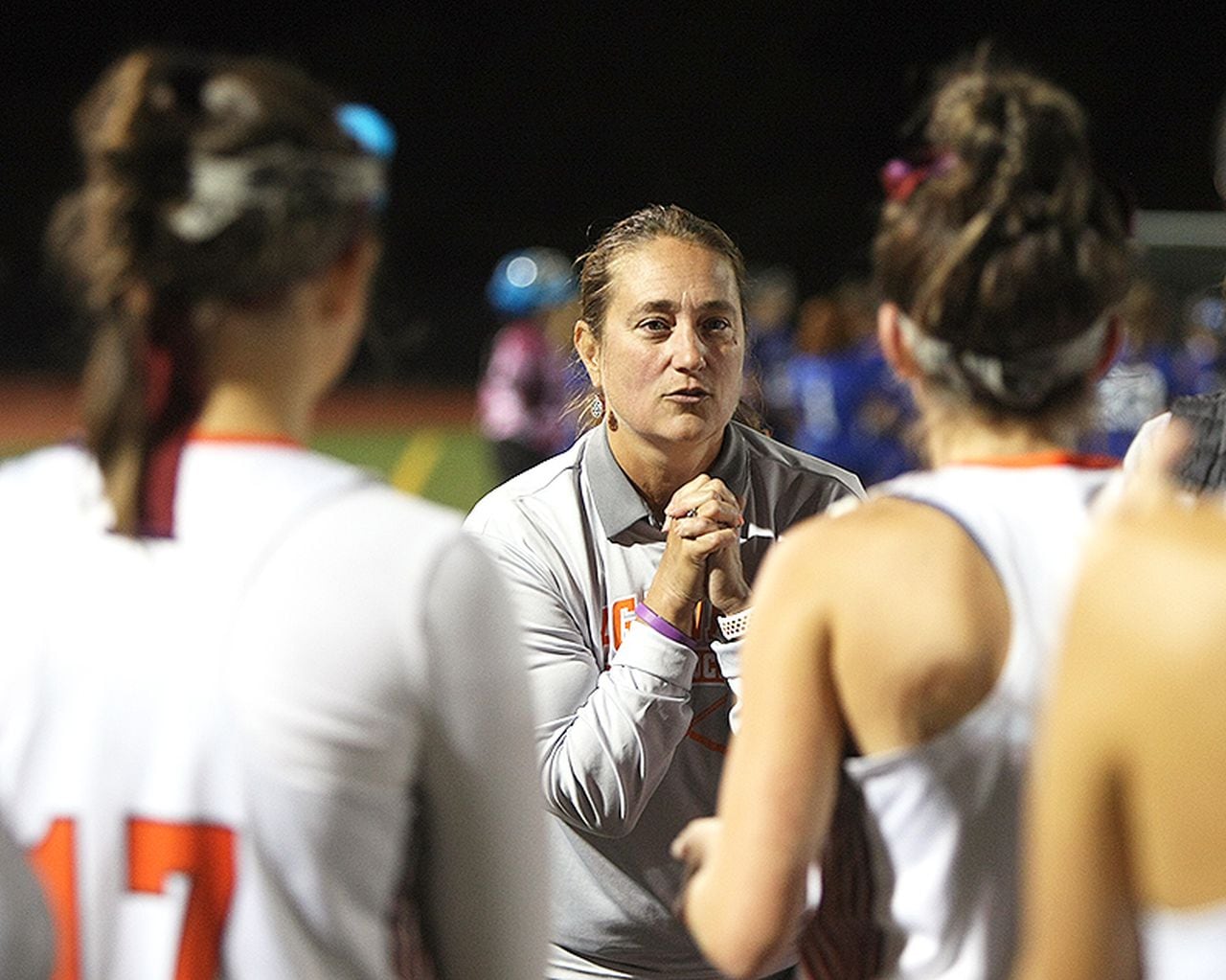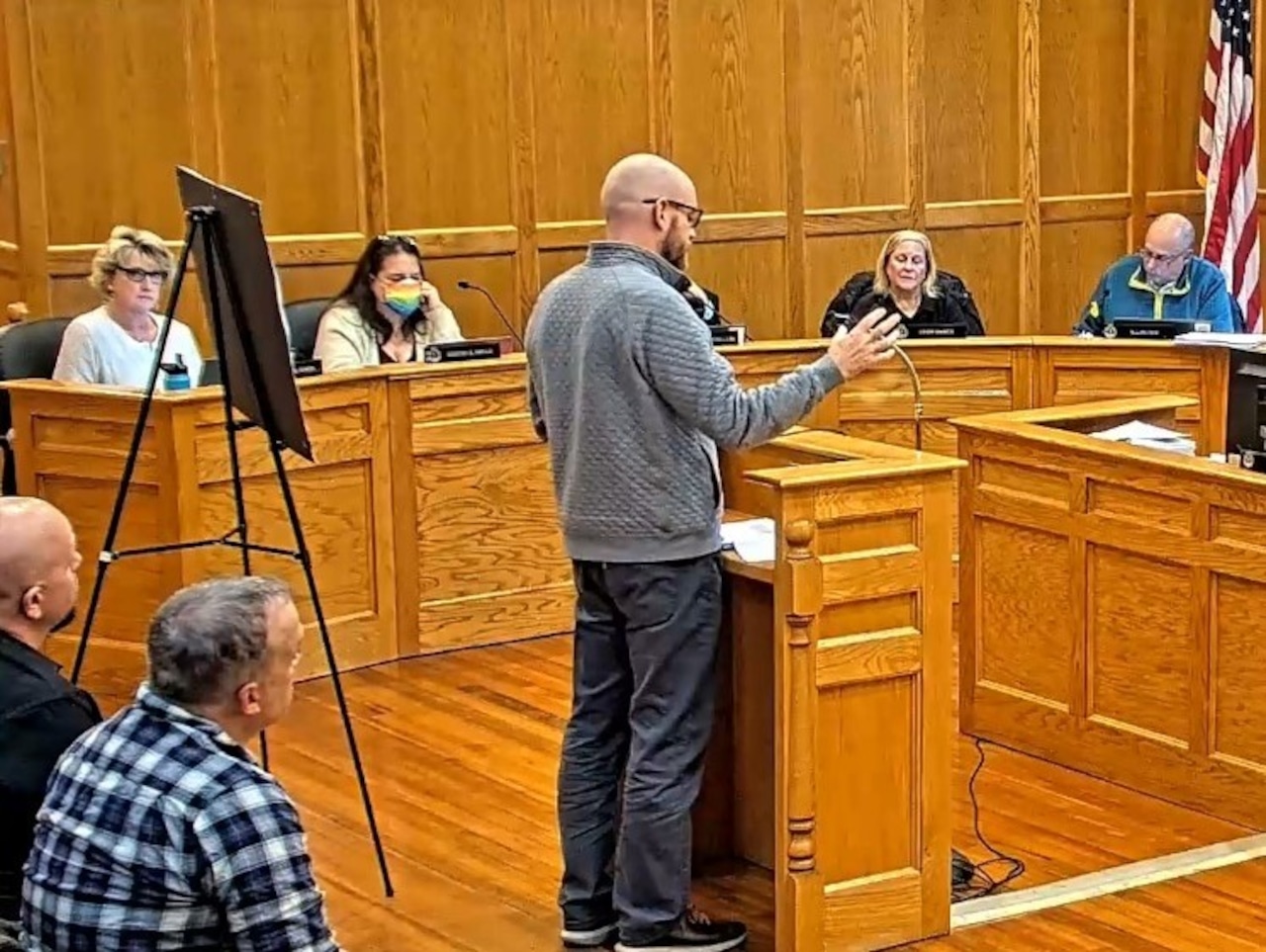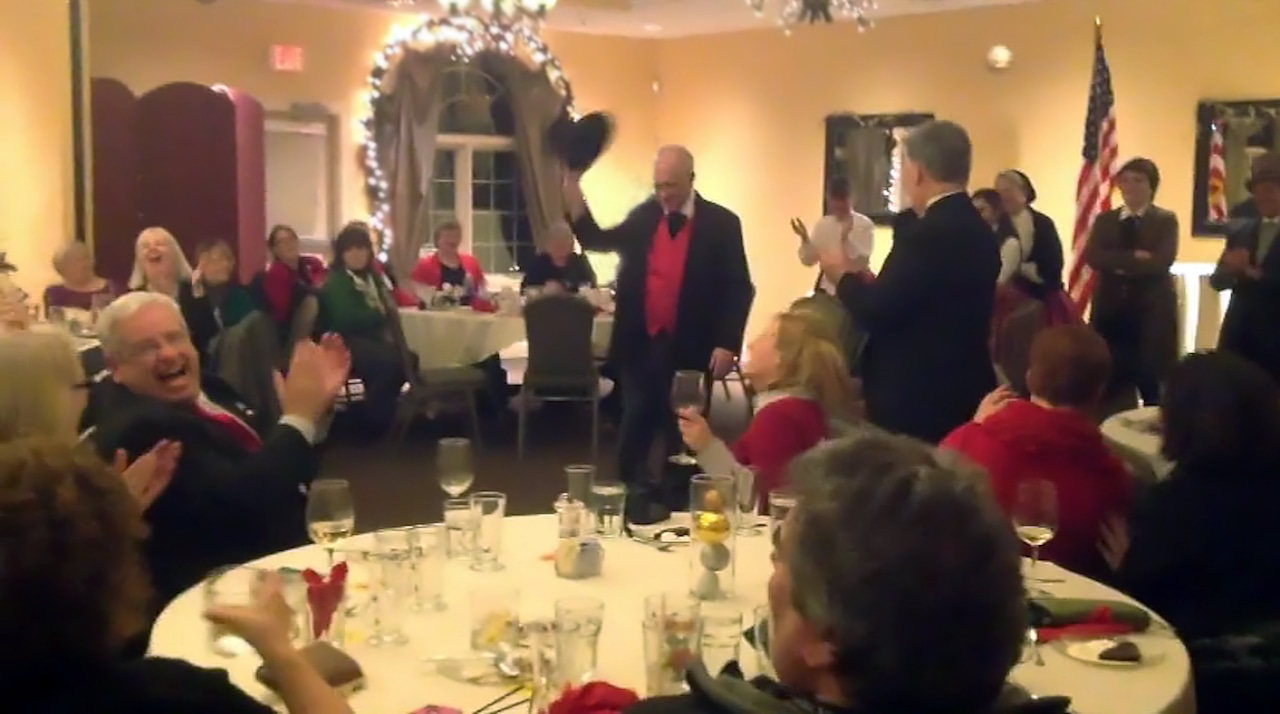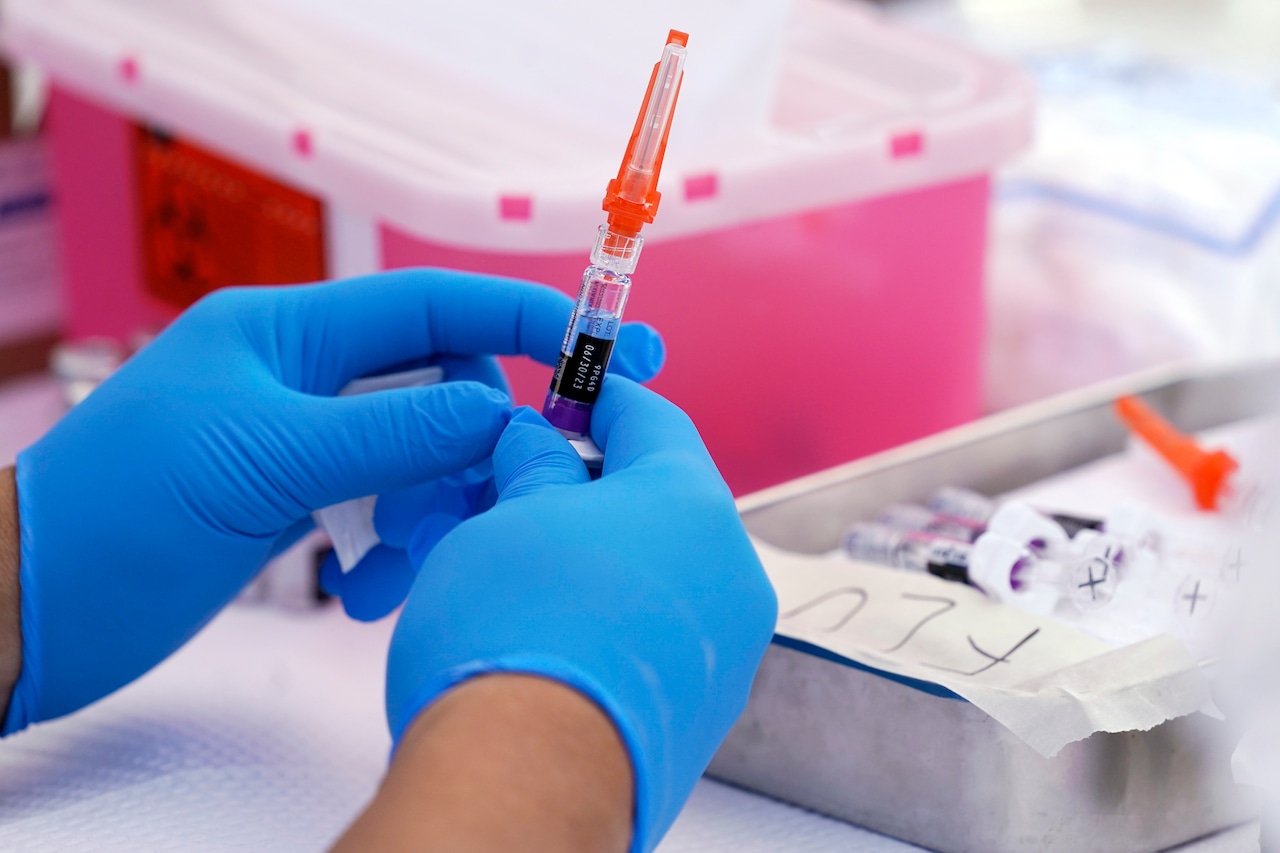
Editor’s Note: This story is part of a series of features on women leaders in Western Massachusetts high school athletics. UMass journalism students wrote the stories as part of a semester-long project in their sports writing class in partnership with MassLive.
Karen Gomez started her career as a physical education and health teacher while also coaching field hockey in the fall. In a career spanning over two decades, she transitioned from teaching and became an administrator. She served as athletic coordinator at Westfield Technical Academy from 2015 to 2023, before becoming the athletic director at Agawam High School.
After receiving her master’s degree in education with a concentration on physical education, Gomez knew that there was more to learn. In March of 2023, she was certified to administer Mental Health First Aid from the National Council for Mental Wellbeing.
The idea of a mental practice came to Gomez after seeing one of the Agawam teams struggle in performance. Stepping into her new role as an AD at Agawam, Gomez set up a workshop with the team to test their mental toughness.
Focusing mainly on communication, the team learned their differences in just one session. They eventually reversed their luck and Gomez could see why. For Gomez, athletics isn’t strictly defined by the skills of individual athletes. The mental aspect of sport is just as vital to her.
This is an edited transcription from an interview conducted with Gomez.
Q: Why is the mental aspect of sports important to you?
A: If you look at women in sports, if you look at Title IX, and you look at breaking that glass ceiling and where women have come in regards to athletics, administration has been a man’s world … I’ve been very fortunate that the roles of society have been changing to open up those opportunities for women.
Q: Would you say that that’s your focus as a leader?
A: I would say my focus is servant leadership, it’s the community service, it’s learning through sport. I always steal a quote in regards to servant leadership, “If service is above you, leadership is beyond you.” So, it’s giving back, it’s giving back to your teammates, it’s giving back to your coaches, thanking those officials for putting the time in. It’s just realizing and trying to get everybody (to know) what goes into sports and it’s more than just wins and losses … so I like to take a holistic approach more to sport and look at it as that educational leadership, the character building, the communication, the camaraderie, more so than the championship team.
Q: Would you say that’s kind of your message and mission?
A: I would absolutely say that, and I think it starts with communication. How are we communicating? Indirectly, directly, even what our emotions, how they communicate, what people see, and I think it’s difficult … What’s positive communication? Communication is (going to) help you in every aspect of life … How are we getting it to the next level? How is that interesting? How are people (going to) follow that, and take that and receive that information?
And I think that’s a big role right now in my position as administration, making sure students can communicate, coaches are clear, parents understand what’s going on.
Q: Obviously there’s the physical practices, but did you have anything mental, maybe in a classroom setting?
A: I think a lot of my (focus on) mental (health) comes with my health background, and especially with social-emotional learning. One of my former coaches … Bill Moore, wrote a book on character and mental toughness. And I start to think about character development and being mentally tough and what does mentally tough mean? I’m seeing it here now, with all athletes at all levels. If they have a letdown, how can they pick themselves up? … I’m fortunate in my role now in administration, I was able to work with one of our teams and I did a leadership building with the team when they were kind of struggling. And as small and as short as it was, some of those connections that the team made in that small workshop made a change in their season and started to turn things around. They were able to communicate more with one another, find that common language, just be able to laugh with each other.
Q: So you talked a lot about the mental toughness of sport, how have you implemented that into your administrative role now?
A: I was able to do a workshop this year with our girls volleyball team. They were struggling quite a bit coming together as a team … so we had a two-hour team building session with those student-athletes, (and) had an opportunity for them to share what it was to be a good teammate and what they needed from their teammate. And I’m not saying it was that session, but the team had a positive swing … so we have a lot of ideas working and moving forward, my assistant mentioned … “How about a girls empowerment workshop?” Because that’s where our girls teams are struggling with that mental toughness and that fortitude … so me, I’m looking at what’s different from our boys programs.






